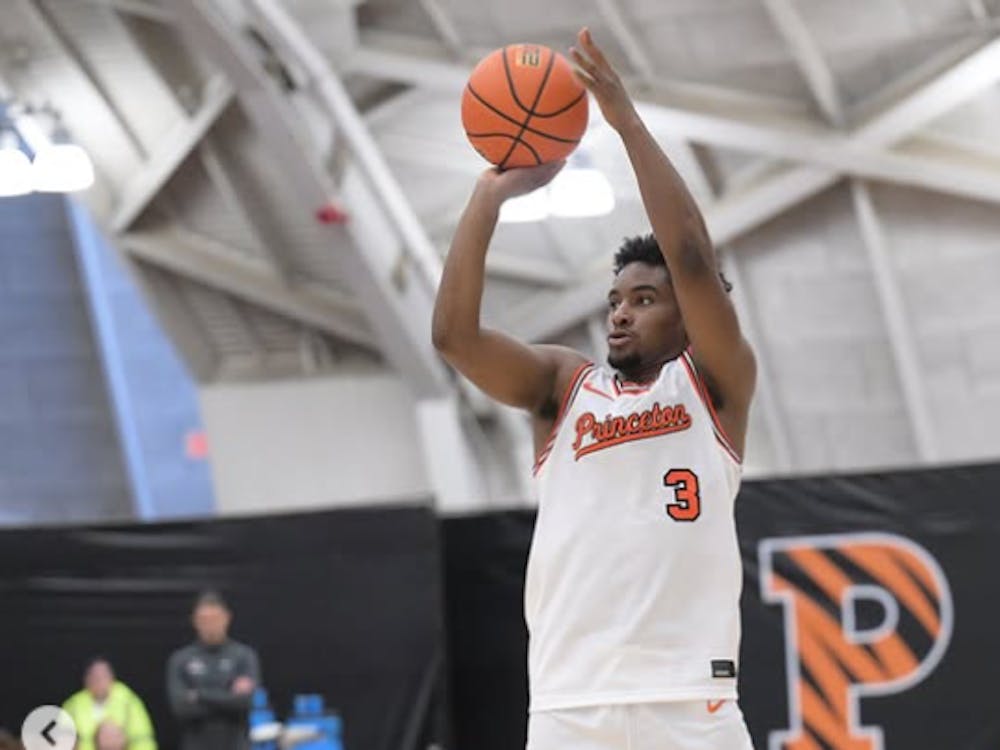This Reunions, the Prince had a chance to sit down and talk with Samuel Young ’96, a former defensive tackle on the Princeton football team. Young concentrated in molecular biology at the University and earned his Ph. D. at the University of North Carolina in under four years. He is a current Research Group Leader of Molecular Mechanisms of Synaptic Function at the Max Planck Florida Institute for Neuroscience. On Friday, he was able to share with us insights on his time on the football team and how it helped shape his eventual success as a scientist.
The Daily Princetonian: Dr. Young, could you tell us of your most memorable moments on the football team at Princeton?
Samuel Young: Well, in my senior season (1996), we went 8-1-1 (one loss against Yale, one tie against Dartmouth) and won the outright Ivy League championship; no team has been able to do that since! And we were able to defeat Penn, one of our chief rivals and the powerhouse at the time — they had just clinched the Ivy League championship the year before — on their own home field by a crushing margin. It also happened to be our first title in 30 years, though we had certainly come close many times.
DP: Did the victory seem like a culmination of years of effort? Had the team been in a sense “building up” to the 1996 championship?
SY: No; actually, we had done quite well in the seasons before as well. In my freshman year, we had shared the Ivy League title with Dartmouth; in my sophomore year, we placed second or third in the conference. But being able to do something special my senior year, to win the title outright, was something that was really amazing for all of us.
DP: What were the biggest challenges of being a student-athlete at Princeton, and do you feel these pressures and challenges have changed for student-athletes today?
SY: Well, I can’t comment too much on necessarily the changes of being a student-athlete at Princeton these days since I’m no longer either a student or an athlete at the University. Of course, being a football player back then, as I am sure it is today, was a large commitment at the University. It was physically and mentally draining. We used to have these grueling summer practices, these awful two-a-day (which Princeton football no longer does). There was the real possibility of players collapsing from heat stroke, and a lot of our players did wash out… it was definitely tough. The amount of time put on the field was a challenge as well; I remember a lot of people in the molecular biology department surprised I was pursuing a sport like football while remaining in such a tough academic discipline. But it was also one of the greatest experiences in my life: in college, I wanted to play football and be a scholar, and that’s what Princeton allowed me to do.
DP: How do you feel about the recent changes in football — specifically, the increasing awareness on the link between football and CTE and the elimination of head-on tackling in football practice?
SY: In terms of CTE and brain damage, I think that it’s good to be aware of the link between CTE and football but also remember that football’s not the only sport out there that can lead to brain injury — take a look at hockey and soccer. As long as changes to the sport can reduce damage and not kill the character of football, I support them.
DP: Did you ever feel that there was a divide between you and other Princeton students?
SY: I had great friends both on the football team and off. But I do understand that athletes, like all other individuals, tend to associate with people they know, people they’re friends with. I think that’s important whenever you consider integration of student-athletes into the general student body. Oftentimes, there was the feeling that, since I was jock, I hadn’t gotten in based on academic merit but solely on football talent; that’s probably a problem that plagues a lot of Ivy League athletes. Being able to major in molecular biology allowed me to prove those rumors wrong: I was an athlete, yes, but also a scholar. I think student-athletes who find their identities at Princeton questioned should remember that.
DP: How has being a football player impacted your career as a scientist?
SY: A lot of science is about failure. It’s about being able to take criticism positively and use it to mold yourself into a better scientist. I really like how the Germans describe a scientist: Wissenschaftler, or knowledge seeker. Being on the cutting edge of science is never easy; you’re bound to see multiple setbacks. I’ve seen a lot of brilliant individuals washout of science simply because their egos weren’t able to handle failure or criticism. As a football player, I had to be tough, to be able to take hits and use criticism of my performance to play better, or I wouldn’t be able to start. As a scientist, I’ve been able to accept and understand the difficulties I have to undergo and to be unafraid of them. I understand the passion and effort needed to succeed in science.






